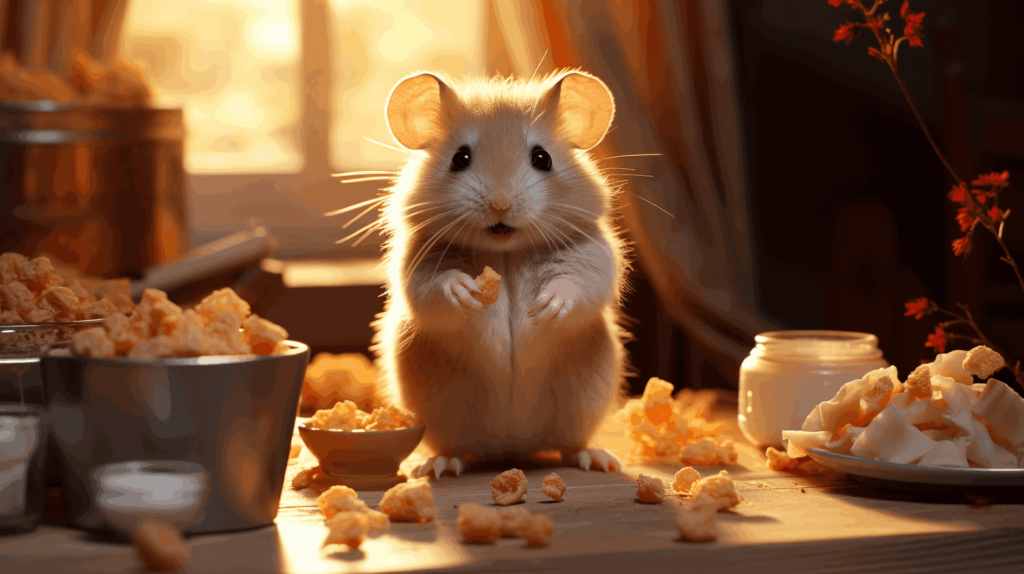Popcorn: the crunchy, buttery delight that brings joy to movie nights and snacking sessions. But when can kids safely indulge in this beloved treat?
This article will explore when it is appropriate for children to consume popcorn. We will delve into the safety considerations, health implications, and age restrictions surrounding popcorn consumption for young children.
By exploring these factors, we aim to provide valuable insights and guidelines to ensure the responsible and enjoyable consumption of popcorn for kids.
Key Takeaways
- Popcorn is unsuitable for children under two due to choking hazards and the inability to chew and swallow it safely.
- Signs of aspiration of popcorn include wheezing, breathing difficulties, choking, coughing, inability to speak, and vocal changes, which can lead to serious lung damage.
- Popcorn is safe for children at least four years old and confident eaters, as they have developed their molars and can chew popcorn properly.
- Monitoring salt and butter content in popcorn is essential to promote a balanced diet and reduce the risks associated with excessive sodium and fat intake.
Age Restrictions: Why Popcorn Is Not Suitable for Young Children
Exploring the safety concerns surrounding popcorn consumption, age restrictions must be implemented due to the potential choking hazard it poses to young children. Specifically, it is recommended that children under the age of 4 should not be given popcorn.
Young children, especially 2-year-olds, have a higher risk of choking on popcorn due to several factors. Toddlers throw food in their mouths, suck rather than chew, and play with their food, making it difficult for them to chew and swallow popcorn properly. Additionally, their lack of back molars further complicates the chewing process.
Popcorn can easily block their airways as dry and hard food, leading to severe consequences. Therefore, it is crucial to enforce age restrictions and ensure the safety of young children by providing alternative snacks that are more suitable for their age and chewing abilities.
Choking Hazards: Why 2-Year-Olds Should Avoid Popcorn
Two-year-olds should avoid popcorn due to the choking hazards it presents. Toddlers at this age have not fully developed the necessary chewing skills to consume popcorn safely. Their tendency to throw food in their mouths, suck rather than chew, and play with their food increases the risk of choking.
Additionally, 2-year-olds are easily distracted, making it more likely for them to choke on popcorn. Furthermore, toddlers lack back molars, making it challenging to chew popcorn properly. Popcorn can easily block their airways as a dry and hard food, leading to serious health complications.
For the safety and well-being of young children, it is best to offer alternative healthy snacks such as bananas, crackers, cucumber sticks, toast, and yogurt.
Health Considerations: Alternatives to Popcorn for Toddlers
To promote the health and safety of young children, it is essential to consider alternative snack options for toddlers instead of popcorn.
Popcorn poses a significant choking hazard for toddlers due to their inability to chew it properly and their tendency to throw food in their mouths. Instead, parents should offer healthier snack options such as bananas, crackers, cucumber sticks, toast, and yogurt.
These alternatives provide nutritional benefits and reduce the risk of choking and aspiration associated with popcorn. Additionally, parents should be mindful of the salt and butter content in popcorn, as excessive intake can negatively affect children’s health.
Risks of Aspiration: Signs and Dangers of Inhaling Popcorn
Unquestionably, the dangers of inhaling popcorn are evident through the signs of aspiration, including wheezing, breathing difficulties, choking, coughing, inability to speak, and vocal changes, which can lead to severe lung inflammation, damage, and even pneumonia.
Aspiration occurs when food or liquid enters the airways instead of the digestive system, potentially blocking the air passages and causing respiratory distress. In the case of popcorn, its small, complex, and irregularly shaped kernels pose a significant risk, especially for young children who may not have developed the necessary chewing and swallowing abilities.
It is crucial for parents and caregivers to be aware of these risks and to monitor children while eating popcorn to prevent choking incidents closely. Additionally, immediate medical attention should be sought if any signs of aspiration are observed to ensure prompt treatment and avoid further complications.
Safety Guidelines: When Popcorn Is Safe for Older Children
The safety guidelines provide valuable information on when popcorn can be safe for older children. These guidelines are crucial in ensuring the well-being and health of children while enjoying this popular snack.
Here are five key points to keep in mind:
- Popcorn is safe for children at least four years old and confident eaters.
- Children’s molars should have come through by around 33 months, allowing them to chew popcorn safely.
- Supervision is essential while children are eating popcorn to prevent any choking incidents.
- Discarding unpopped and partially popped kernels is crucial to reduce the risk of choking.
- Serving popcorn in small portions helps prevent overstuffing and potential discomfort.
Salt and Butter Concerns: How to Monitor Intake for Kids
Parents and caregivers should be mindful of the salt and butter content in popcorn for kids. They should monitor intake to promote a balanced diet and minimize the potential adverse effects of excessive sodium and fat consumption. Although a popular snack, popcorn can be high in sodium and unhealthy fats when prepared with excessive salt and butter. High intake of these substances can contribute to health complications such as high blood pressure and obesity in children.
It is advisable to choose low-sodium options and use minimal amounts of healthier fats, such as olive oil when preparing popcorn for kids. Parents and caregivers can help ensure that children maintain a balanced diet and reduce the risks associated with excessive sodium and fat intake by monitoring the salt and butter content in popcorn.
Digestive Issues: Popcorn and Sensitivity Considerations
In light of digestive issues, it is essential to consider the potential sensitivity to popcorn and explore alternative snack options. Digestive problems can vary from person to person, and some may find that popcorn exacerbates their symptoms. To help navigate this issue, here are five alternative snack options to consider:
- Rice cakes: These light and crispy snacks can be an excellent substitute for popcorn, providing a satisfying crunch without the potential digestive discomfort.
- Veggie sticks with hummus: Opt for crunchy vegetables like carrots or bell peppers and pair them with a delicious and nutritious dip like hummus.
- Roasted chickpeas: These protein-packed legumes can be seasoned with various spices and roasted to create a crunchy and flavorful snack.
- Air-popped popcorn: If you still crave the popcorn experience, try air-popped popcorn, which is a healthier alternative that may be easier to digest.
- Trail mix: Create your trail mix by combining a variety of nuts, seeds, and dried fruits for a tasty and nutrient-rich snack.
Personalized Recommendations: Consulting a Healthcare Professional for Popcorn Safety
Consulting a healthcare professional is essential to receive personalized recommendations for ensuring the safety of children when it comes to popcorn consumption. While popcorn can be a popular and enjoyable snack for older children, safety concerns need to be considered, especially for younger children.
Toddlers, particularly 2-year-olds, should not be given popcorn due to its choking hazards. Their inability to chew the popcorn properly and the risk of distraction make them more susceptible to choking. Additionally, popcorn can be a dry food that is challenging for toddlers to swallow.
It is essential to consult with a healthcare professional to determine the appropriate age and readiness for children to consume popcorn safely. They can guide when it is safe to introduce popcorn into a child’s diet and offer alternative snacks suitable for their age and developmental stage.
Conclusion
In conclusion, the appropriate timing and circumstances for children to safely enjoy popcorn must be carefully considered. The potential choking hazards and risks of aspiration associated with popcorn make it unsuitable for young children, particularly toddlers.
Health concerns regarding salt and butter content should also be monitored, for children with digestive issues or sensitivity, personalized dietary recommendations are crucial.
By following safety guidelines and consulting healthcare professionals, parents can ensure their children enjoy popcorn responsibly and without compromising their health and safety.


